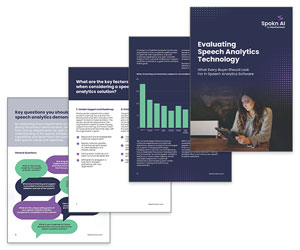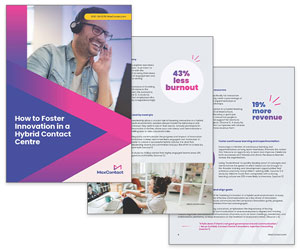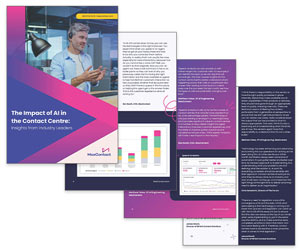How many of us have told a waiter we were happy with an overcooked meal or said our broadband or banking services were fine just to get a company representative off the phone?
Now a new survey has quantified what might be described as “traditional British reserve”, and in doing so, revealed a huge dilemma for British businesses.
The survey of 1,000 consumers, carried out for contact centre software provider MaxContact found that nearly a quarter of UK consumers have told a brand they were happy with the service they received when they weren’t, while a whopping 61% believe that UK businesses think their service is better than it is.
The survey is evidence of a major challenge for businesses. Consumers are unhappy with the service they receive, but a large number won’t complain to the brands concerned. Many companies only learn about a customer’s dissatisfaction when they lose their business.
To make matters worse, well over half (55%) of all consumers make excuses to get off the phone with a company representative, giving businesses precious few opportunities to identify and rectify any issues a customer may have, with industries regulated to make consumer switching easy, like energy, banking and telecoms, potentially hit the hardest.
Perhaps counter-intuitively, the survey found that younger consumers were more reticent about complaining than older counterparts, with Generation Z 31% more likely to cover up their dissatisfaction than Baby Boomers.
Worryingly, dissatisfaction remains high across the board. More than a quarter of UK adults feel unhappy with their broadband provider more than three times each year, while 17% are unhappy three or more times a year with their bank.
A fifth (20%) are unhappy three or more times a year with their utility provider.
MaxContact CEO Ben Booth said:
“These are troubling findings for UK business because it means they aren’t being given the chance to solve a customer’s issue before they walk away, or to improve customer service more generally.
“Without customers telling us what we’re doing wrong, it’s difficult to know what we need to do better, but customers are reluctant to say.
“That might be because they don’t like confrontation, they don’t want to cause a scene, or they don’t want to have a drawn-out conversation when they’re busy – I think we’ve all been there.
“But whatever the reason, that British reserve is hampering the attempts of many businesses to be better.”
“It’s not the UK consumers’ job to tell you what your business is doing wrong, but if you’ve built rapport and you’re asking for feedback in a way that requires minimal effort, your customers might be more willing to come forward.”
Ben suggests three ways that companies can encourage better feedback from customers:
- Adopt an omnichannel approach. A customer might not feel comfortable complaining over the phone but will happily text, WhatsApp or give honest feedback over a webchat.
- Create and advertise a complaints channel. Customers sometimes feel guilty venting to a customer service agent, especially when they’re pulling out all the stops to retain your business and their monthly targets rely on you. They might be willing to use a specific complaints channel, especially if they know that the issue will quickly escalate to the right people.
- Invest in speech analytics. Adding speech analytics to your contact centre software is a cost-effective way of identifying customer sentiment through tone and speech patterns, regardless of what they actually say. Monitor customer contact behaviour, analyse your dialogue and start to build a ‘formula’ to help you proactively address potential customer churn.
For more information about MaxContact - visit the MaxContact Website
Author: MaxContact
Published On: 15th Jul 2021 - Last modified: 20th Jul 2021
Read more about - Industry News, MaxContact






 MaxContact is customer engagement software that goes above and beyond to build smarter customer experiences. Our platform is packed with powerful features, accessible for businesses large and small, and ensures organisations can operate compliantly.
MaxContact is customer engagement software that goes above and beyond to build smarter customer experiences. Our platform is packed with powerful features, accessible for businesses large and small, and ensures organisations can operate compliantly. 










